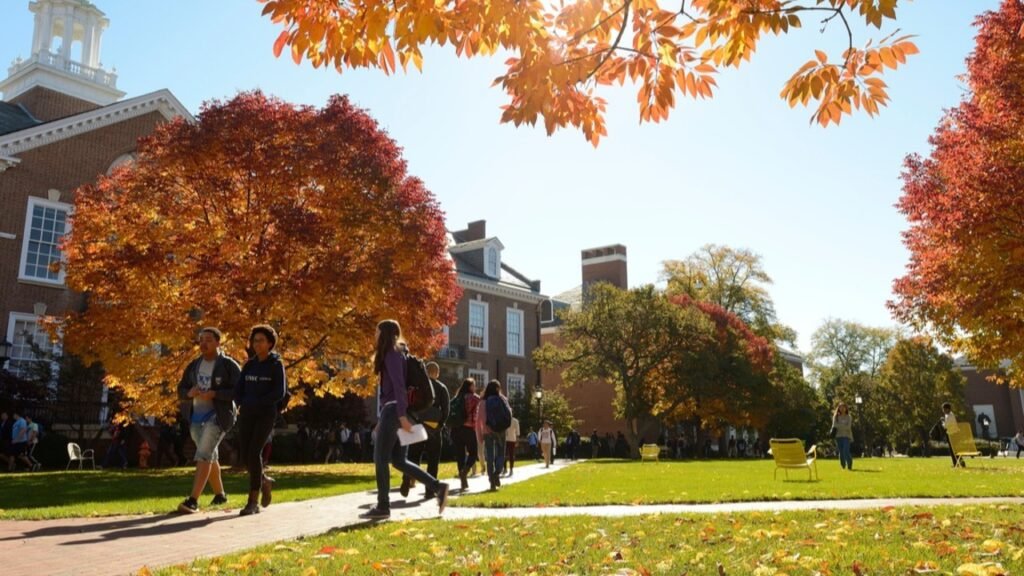Advertisements
Thinking about going to college soon? Johns Hopkins University might be the place for you, especially if you’re ready to start in the 2024/2025 school year. Known around the world for its great research and smart teachers, Johns Hopkins isn’t just any university. It’s a place where future leaders learn how to make a difference in the world.
In this blog post, we’ll tell you all about what you need to get into Johns Hopkins, how much it might cost, and how to apply. If you’re excited about joining a community that cares about big ideas and making things better, you’re in the right spot. Let’s get into the details you need to start your application and take the first step toward an exciting future at Johns Hopkins. So, are you ready? Let’s go!
Johns Hopkins University Overview
Johns Hopkins University, located in Baltimore, Maryland, is a private research university that stands as a beacon of excellence in higher education. Founded in 1876, it was named after its first benefactor, the American entrepreneur, abolitionist, and philanthropist Johns Hopkins. Known for being the first research university in the United States, Johns Hopkins has a proud tradition of combining innovative teaching and groundbreaking research.
The university is divided into several schools and divisions, catering to a wide range of academic interests. These include the Krieger School of Arts and Sciences, the Whiting School of Engineering, the School of Education, the School of Medicine, the School of Nursing, the Bloomberg School of Public Health, and the Peabody Institute for music and dance. Each of these schools contributes to Johns Hopkins’ reputation for academic excellence and innovation.
Advertisements

Johns Hopkins University Tuition
While exact tuition rates can vary year to year and between different programs, a general understanding of the costs associated with attending Johns Hopkins can help prospective students and their families plan effectively.
Undergraduate Tuition
For undergraduate students, the annual tuition rate at Johns Hopkins University for the 2024/2025 academic year is anticipated to be in the range of approximately $58,720. This figure represents tuition alone and does not include additional costs such as room, board (meals), fees, books, supplies, and personal expenses, which can bring the total cost of attendance to around $76,397 or more per academic year.
Advertisements
Graduate Tuition
Graduate tuition at Johns Hopkins varies significantly depending on the specific program and school. For example, programs in the School of Medicine, School of Nursing, Bloomberg School of Public Health, and the Whiting School of Engineering have different tuition rates that reflect the specialized nature of each program. Prospective graduate students should consult directly with their intended department or program for the most accurate and current tuition information.
Financial Aid and Scholarships
Johns Hopkins University is committed to making education affordable and accessible for students from diverse economic backgrounds. The university meets 100% of demonstrated financial need for admitted students, offering a range of financial aid packages that can include grants, scholarships, work-study opportunities, and loans.
- Need-Based Financial Aid: Students are encouraged to apply for financial aid by completing the FAFSA (Free Application for Federal Student Aid) and the CSS Profile.
- Scholarships: Johns Hopkins offers various merit-based scholarships, some of which may cover full tuition. These scholarships are awarded based on academic excellence, leadership, and other achievements.
- Work-Study: Eligible students can participate in the Federal Work-Study Program, which provides part-time employment opportunities both on and off-campus to help cover educational expenses.
READ ALSO: How to Apply for Scholarship in Canada for Masters Students
Advertisements

